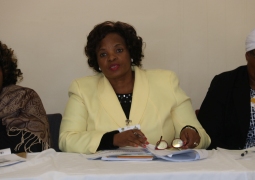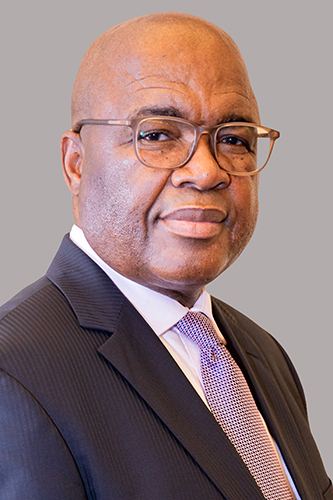
The proposed National Health Insurance (NHI), a government initiative that seeks to provide quality healthcare to the poor and rich as well, received overwhelming support from Members of Parliament (MPs) during a debate of the Department of Health’s Budget Vote in the National Council of Provinces (NCOP).
During his tabling of the department’s budget of more than R42bn before the NCOP, the Minister of Health, Dr Aaron Motsoaledi, also announced the finalisation of the policy document on NHI which he said has now been submitted to Cabinet for adoption.
“It (the NHI) is something that our forebears, in drafting the Freedom Charter in 1955, dreamt of. It is something that the United Nations did not only dream of, but adopted in September 2015 as one of the 17 Sustainable Development Goals, and they named it "Universal Health Coverage", using the name given to it back in 2005 by the World Health Organisation (WHO),” said the Minister.
He said the NHI is a health financing system that pools funds to provide access to quality health services for all South Africans based on their health needs – irrespective of their socio-economic status.
“Under the NHI we intend to pool funds for all South Africans. In medical aids, the word ‘all’ does not exist. Medical aids are designed for a selected privileged few and pretend that the majority of South Africans do not exist,” said Dr Motsoaledi.
He said under the medical aid system, even the selected privileged few are stratified according to their economic status. “The more senior the job you perform, the higher your salary, the better the quality of health services you get. The more junior your job status is, the lower your salary, the lesser the quality of health services you get,” the Minister explained.
This cannot be allowed to go on any longer, he added. “It is a flagrant disregard of our Constitution because the Constitution does not recognise economic status in the provision of health services.”
Minster Motsoaledi said the medical aid practice was also a “flagrant disregard of our Constitution because under medical aid, health is a condition of employment status – whereas in the Constitution healthcare is a right”.
“So our NHI is going to be exactly that and when the document is brought to you after final approval by the Cabinet next week, South Africa shall start on this difficult but noble journey towards equalising between the rich and the poor in healthcare.
The Minister said NHI represents a substantial policy shift that will necessitate a massive reorganisation on the current health system, public and private.
“We will then outline in detail how the public and private healthcare systems shall be massively organised to reach the noble goals of a Universal Health Coverage.
The Chairperson of the Select Committee on Social Services, Ms Cathy Dlamini, declared the Committee’s support for the department’s budget and the progress made in the development of the NHI policy.
“The health status of any country is a key condition for economic development and future growth. This initiative, the NHI, seeks to ensure that all South Africans have access to quality healthcare irrespective of their economic status and we fully support it,” she said.
However, the Chairperson urged the Minister to attend to challenges facing the healthcare services, especially in poor regions and where the NHI was being piloted.
“While the country’s healthcare facilities infrastructure is facing challenges in most provinces, especially in rural areas, the 2017 budget indicates that the heath facility revitalisation grant will be cut over the next three years, this is a major impediment, we therefore call on the National Treasury and Department of Health to indicate what steps they will be taking to ensure such budget cuts do not negatively affect the quality of our healthcare facilities,” she said.
NCOP delegate Ms Tandi Mpambo-Sibhukwana also raised a concern about the state of healthcare in rural areas, saying “rural areas were left behind in the improvement of healthcare services”.
Mr Lennox Gaehler, another delegate of the NCOP, said: “We need a healthy nation in order to put South Africa through a sustainable socio-economic development path.”
He said a failing health system has devastating consequences for the current and many generations to come.
NCOP Member, Mr Makosini Chabangu, said the implementation of the NHIs was very critical to addressing the unequal access to quality healthcare for many South Africans.
“It is not clear when the NHI will be implemented, it is not clear where the budget for its implementation will come from, it will be difficult to implement the NHI,” he said.
By Sakhile Mokoena
14 June 2017

